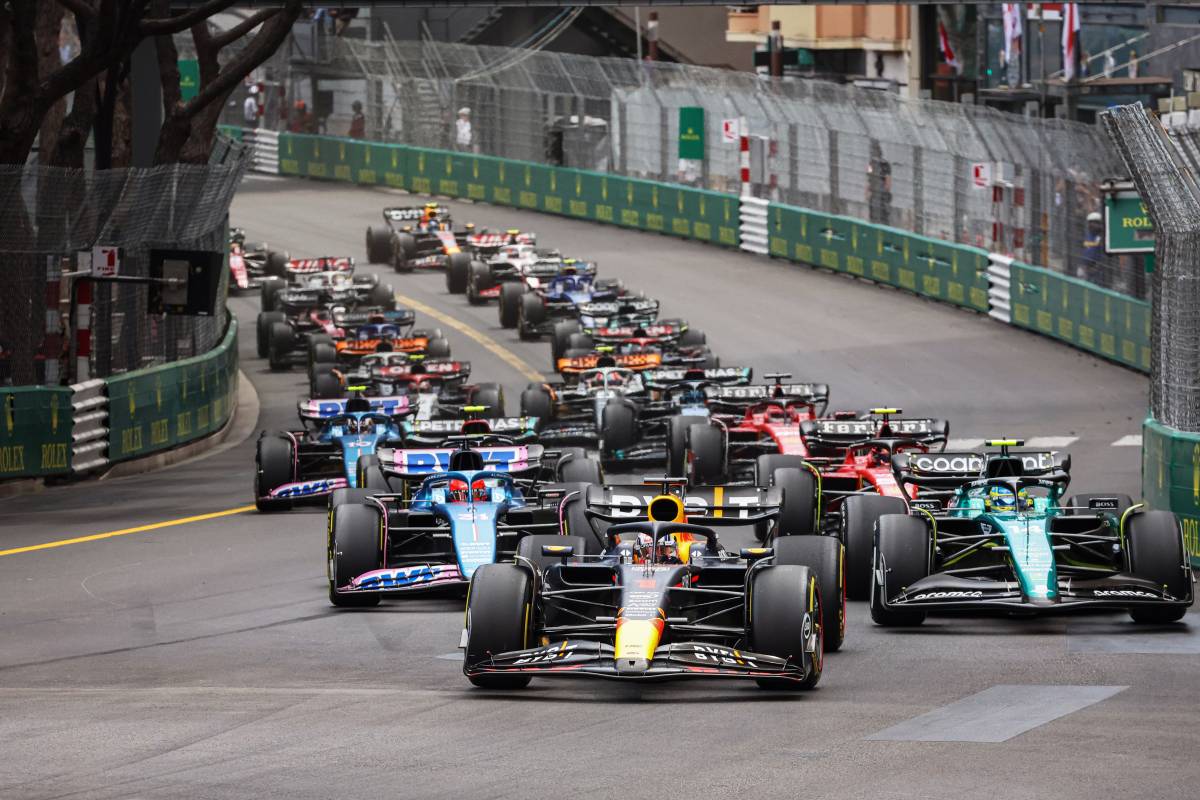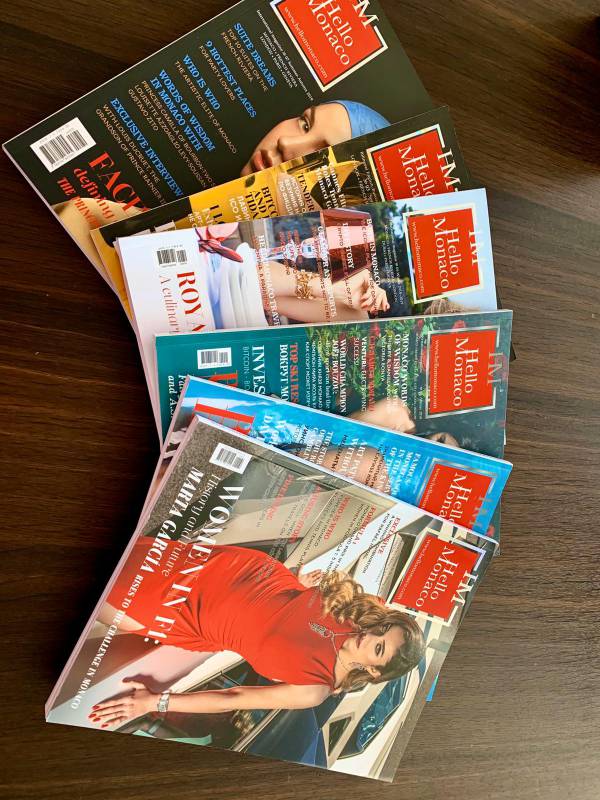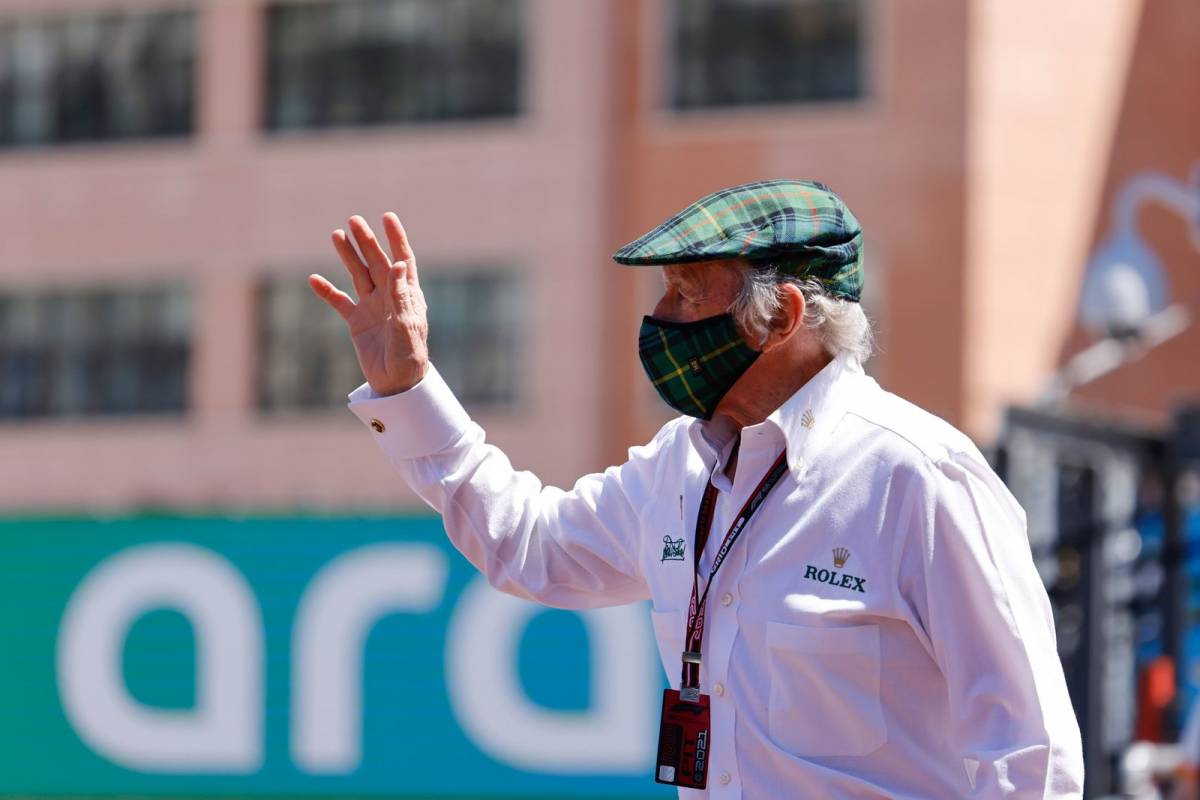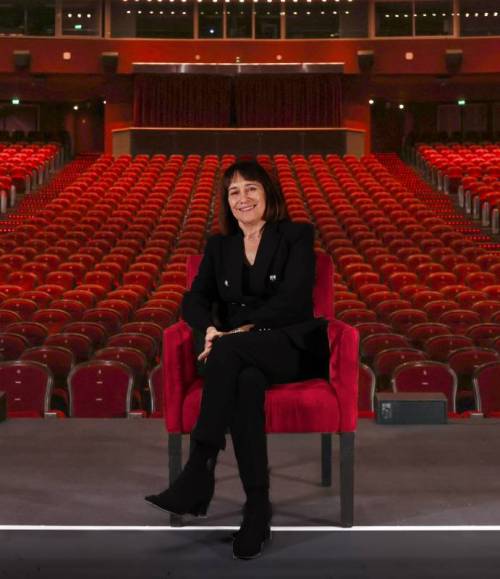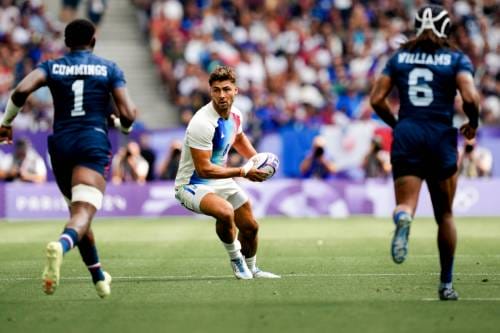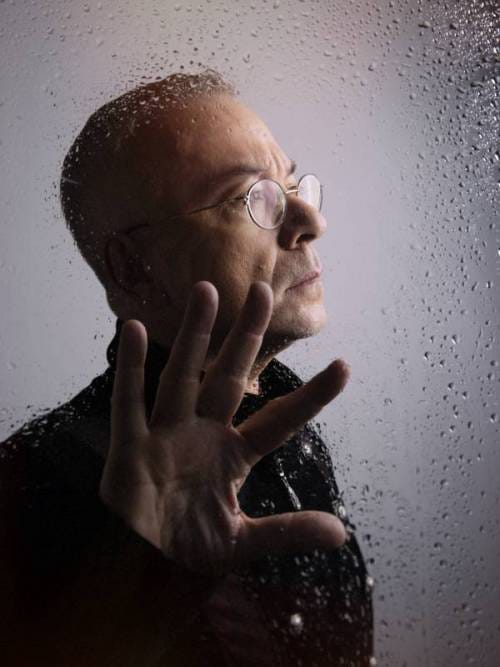Sir Jackie Stewart is not only a legendary Scottish racing driver, the winner of three World Drivers’ Championships, but also a generation icon. In his childhood the motorsport star was dyslexic. But even that didn’t stop him from becoming a world known celebrity and being successful not just in sport.
His unique style: a tartan cap and long hair, similar to that of a rock star became a recognizable image in pop culture. He also took part in the John Frankenheimer movie “Grand Prix” and in the Roman Polanski film “Weekend of a Champion”. Robbie Williams dedicated his world-famous video “Supreme” to “Flying Scot” Sir Jackie Stewart. After his career in motorsport he started as a television sports commentator.
One of the most successful drivers he made a revolution in racing. Some critics said he took the romance out of this sport, but improving safety measures saved countless lives, thanks to him. Jackie’s desire to help people never fails. His association “A Race Against Dementia” is driven to raise money to fund innovative dementia research and find a cure.
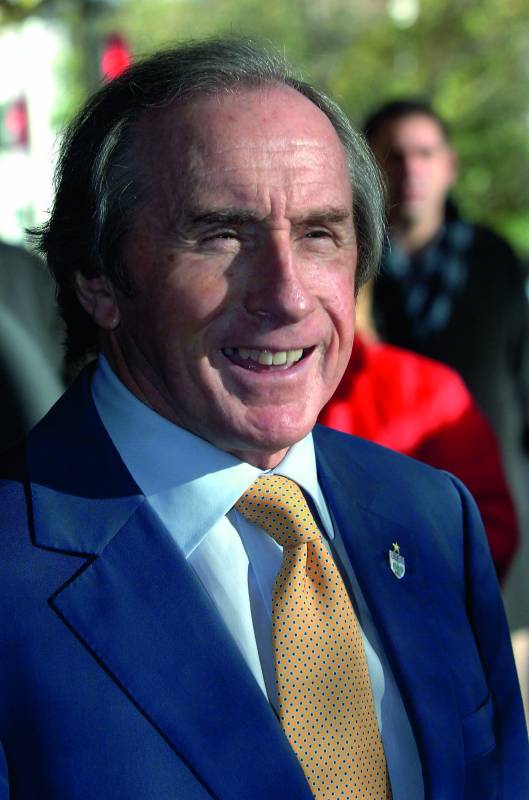
HelloMonaco was lucky to secure an exclusive interview with Sir Jackie Stewart right before a special preview screening of new colourful and powerfully emotive documentary ‘STEWART’ which tells the story of Jackie’s F1 career and in support of Race Against Dementia, under the High Patronage of H.S.H. Prince Albert II of Monaco, and on the brink of the 79th Monaco Grand Prix.
HelloMonaco: Sir Jackie, what is Monaco for you?
Sir Jackie Stewart: It’s always great to be back in Monaco! I feel like it’s my second home. It’s very special. People behave well, dress well, beautiful yachts and of course beautiful girls.
I have been coming here since 1964. For the first time I came to Monaco to race in Formula 3 and I won. I was just a puppie! Still Monaco is the jewel in the crown. It’s still the most glamorous, the most colourful circuit in the world for Formula 1.
HM: Did you know Prince Rainier and Princess Grace personally?
Sir Jackie Stewart: Yes, very well. I used to come here and we had holidays a couple of times in the Palais and in their Roc Agel residence. Very nice couple, very good hosts. I have known Albert since he was a little boy.
The period when Princess Grace was here was the other dimension. They brought so many people to Monaco for the Grand Prix. Cannes film festival is normally held at the time of the Grand Prix. All movie stars used to come.
My particular period here in the 60s and 70s probably was the most exciting time. I make a joke, that in those days motor racing was dangerous and sex was safe! It was an amazing time! The Beatles came here, the Rolling Stones, Frank Sinatra and Elizabeth Taylor.
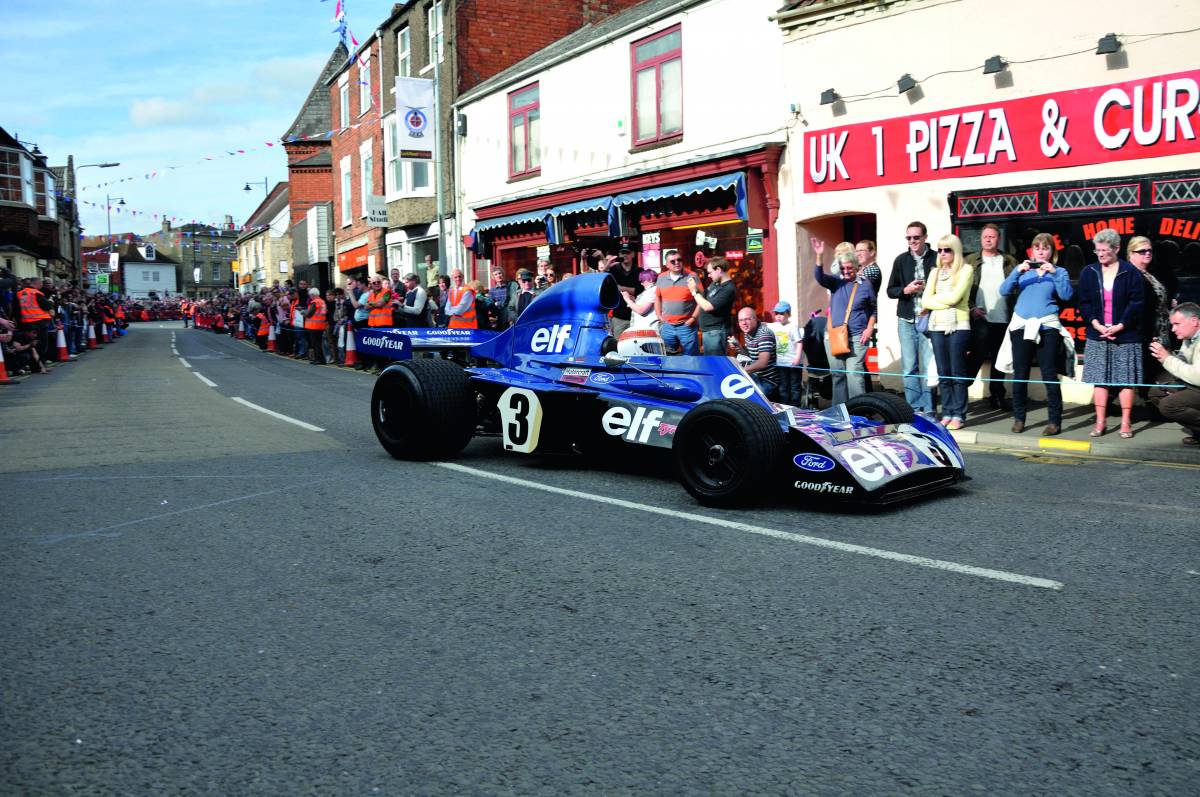
HM: How do you feel about Formula 1 now?
Sir Jackie Stewart: I usually go to 10 Grand Prix races in a year. Never miss Monaco. Well, the Grand Prix in Monaco is still the Grand Prix that every driver wants to win. It’s bigger today than it was in my day; here in Monaco there are 100 mechanics and engineers looking after two racing drivers. In my days there were 7 or 10. And a lot of the drivers live here. It’s more global, more international. The biggest difference is safety.
It’s a difficult race, because if you make a small mistake, the result is a big penalty. First you have to finish, and that means don’t get into trouble. In my days so many people passed away. My wife and I counted 57 of our friends, who drove racing cars that were killed. Because there was no safety, no good firefighting, no good medical facilities.
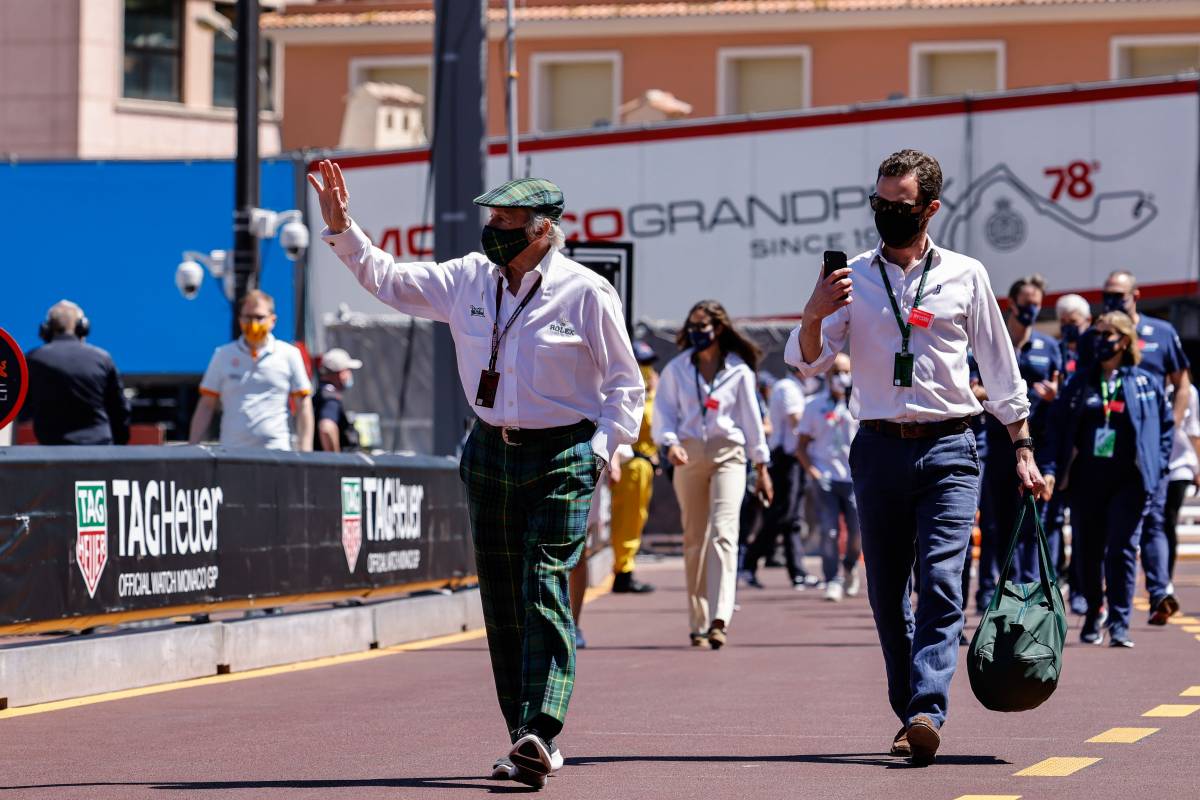
HM: Do you know the secret of the Monaco track? How to win here?
Sir Jackie Stewart: I think the biggest thing in Monaco is the head. Emotions are a very dangerous business, you girls know! When you get emotional, you do things you usually never do.
In a racing car if you are emotional and too aggressive, you usually make mistakes. You hit part of the wall, you hit Hôtel de Paris. In the first corner normally all cars pass through with the slightest of kisses to spare. It’s the circuit where the mind has to be more focused than with any other circuit. To win a Grand Prix here it’s different to winning any other Grand Prix in the world.
HM: How do you feel about the new generation of drivers?
Sir Jackie Stewart: The driver now is the same type of animal. They are responsible, very glamorous, very exciting and girls love them.
Now you have to start in karting. Lewis Hamilton started at the age of 8. And then you go through different formulas. Today’s racing driver was a racing driver from just a puppie.
Now we are getting girls into carting and I hope to see in the near future girls in Formula 1. Can you imagine how much money a girl in Formula 1 will make with lovely clothes? I want to be her manager!
HM: You are famous as a safety race advocate. You did a lot, but you were criticized, why?
Sir Jackie Stewart: We closed the Nürburg race in Germany, for example. It was the most wonderful track in the world, 187 corners, but there was no safety. No barriers, there were trees, telegraph posts… No ambulance, no firemen… I had a crash there. After all, other tracks improved their safety precautions.
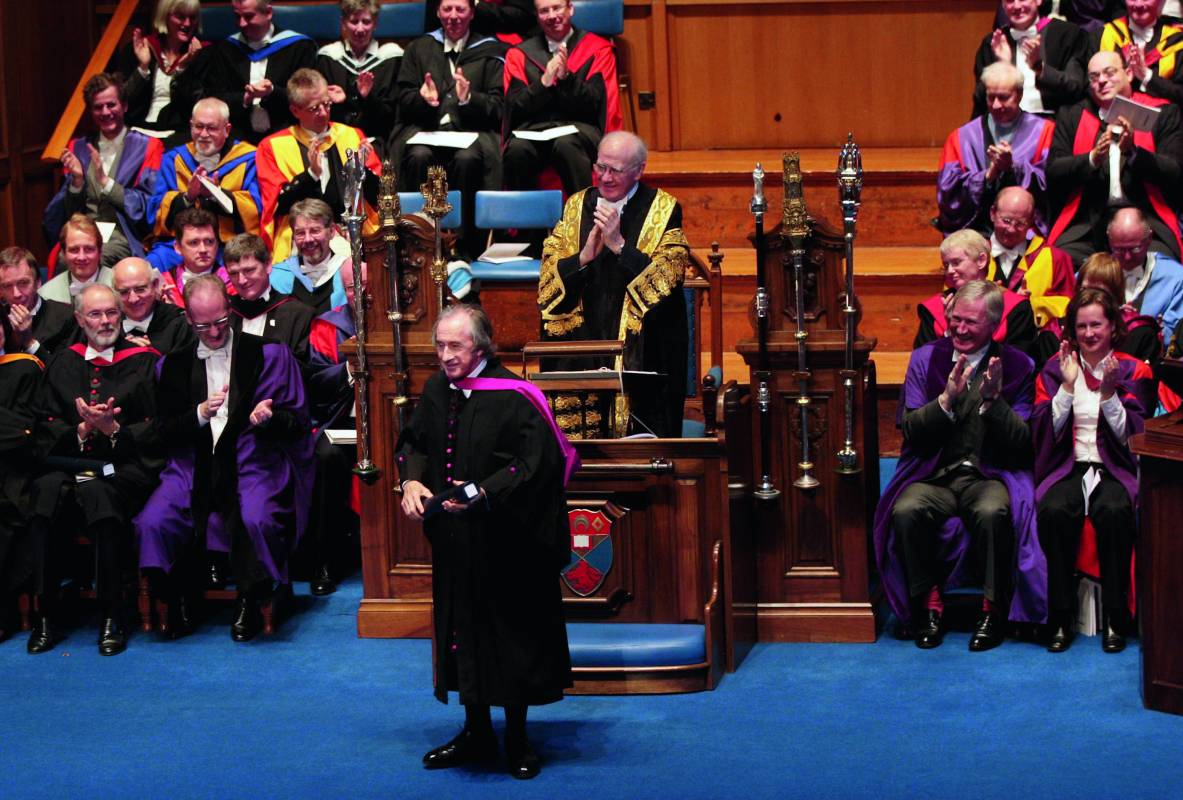
HM: Sometimes difficulties make us stronger and help us to look at our life from a different side. I know that you were diagnosed with dyslexia. How has it changed your life?
Sir Jackie Stewart: When I was a child at school I was a disaster. I left school at the age of 14 with no education. If you give me a million dollars I couldn’t recite the alphabet, I can’t read, I can’t write, I can’t do a letter by hand. I couldn’t write a letter to the Queen, I had to get it typed.
But when you are dyslexic you find something you are good at. Steven Spielberg is dyslexic, Harrison Ford, George Lucas are dyslexic, Einstein was dyslexic, Leonardo da Vinci was dyslexic. But these people think outside the box.
HM: You made a name in target shooting…
Sir Jackie Stewart: I started after leaving school. I shot for Scotland and then for Great Britain, I did that from the age of 14 until 24. And when I was 24 I got married. Wives are very expensive! Shooting was an amateur sport. I had to be a Grand Prix driver to afford a wife; I had to be a world champion to afford a wife.
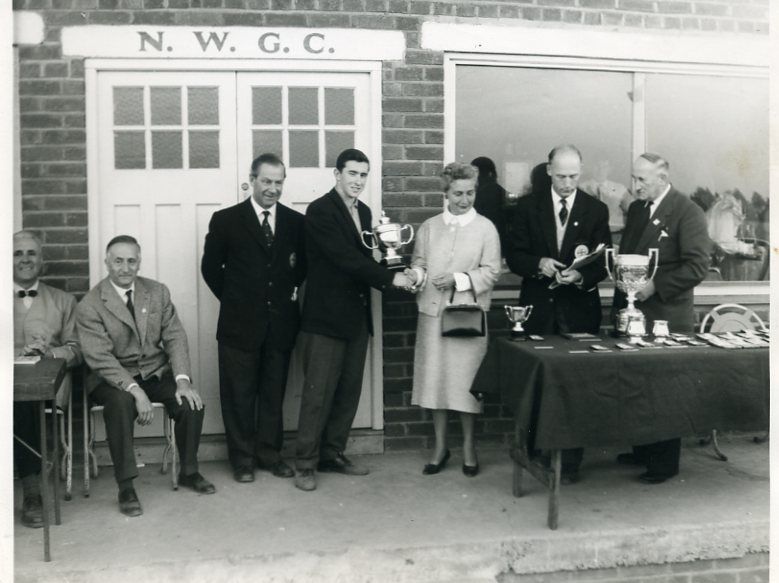
HM: But you did it!
Sir Jackie Stewart: Yes, and I’ve kept the same wife.
HM: You were granted a noble title. Does it help you in your life?
Sir Jackie Stewart: You cannot be a bad ambassador for your country! I had various medals before I got a knighthood in my particular case. I was completely retired from Grand Prix racing when I was given the title Sir Jackie Stewart.
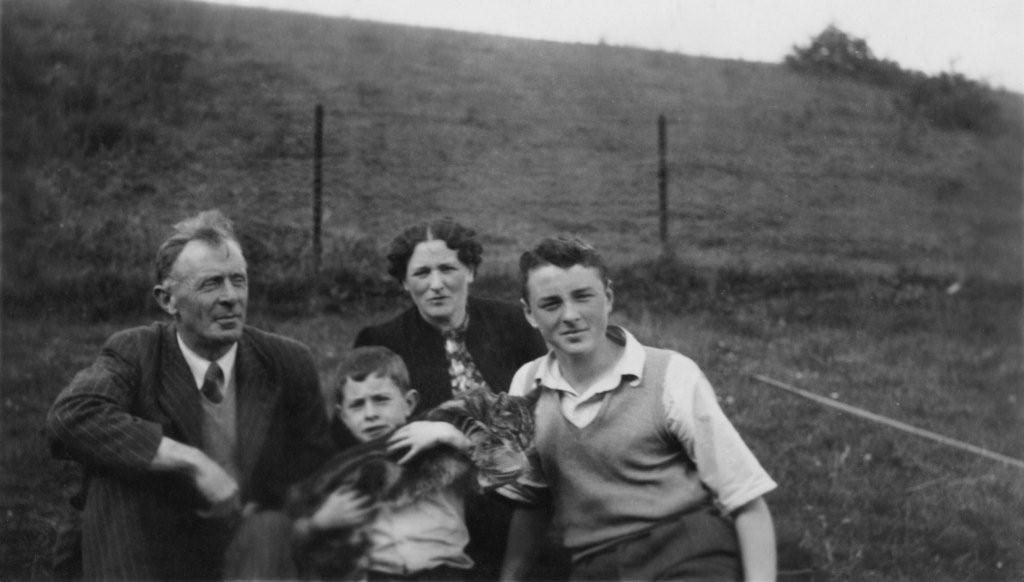
HM: In 2018 you set up the charity Race Against Dementia. Why is it so important for you?
Sir Jackie Stewart: Do you see the broken “D”? My wife unfortunately has dementia. There is no cure for dementia, currently. For over 40 years there has been no cure. Statistics now tell us that for everyone born today, 1 in 3 is going to have dementia. Terrible illness, much sadder than all the illnesses I’ve ever known.
So I started “A Race Against Dementia” (www.raceagainstdementia.com). We support and pay for the education of talented young scientists and doctors from all over the world who specialize in the study of this terrible illness. And of course even a small donation will help us a lot.
My biggest challenge in my whole life is now to find a cure for dementia. Motor Racing was easy compared to this.
HM: Thank you very much and I really wish you good luck in your race against dementia. I hope you will find a cure for your wife and for other people!
Sir Jackie Stewart: Thank you!

